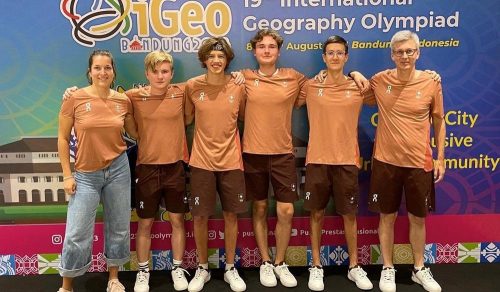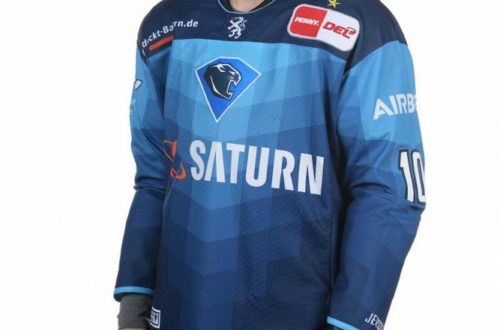IPC members approve new constitution at General Assembly
The approval of the new Constitution with 123 yes votes (96 per cent) from 128 valid votes at the 20th IPC General Assembly – which is being held online – follows an extensive stakeholder consultation and review of the IPC governance structures, which was announced in April 2018.
Andrew Parsons, IPC President, said: “I would like to thank the whole IPC membership for contributing towards the governance review and consultation process for nearly three years and approving it by an overwhelming majority. This has been a real Movement-wide effort led by our Vice President Duane Kale and the Governance Review Working Group.
“Updating the governance structures and adopting a new Constitution will ensure the IPC remains a world leading sports’ organisation and is well placed for the future. In the new Constitution we redefine our purpose as an organisation, increase accountability and transparency, and take measures to further ensure the IPC is a membership-focussed organisation.”
Duane Kale, IPC Vice President and Chair of the Governance Review Working Group, said: “Today’s approval of a new IPC Constitution concludes an almost three-year-long process that will benefit the IPC for many years to come.
“Throughout the process we have aimed to engage, listen and learn from the feedback provided by our members. As a membership-based organisation, it is vital that the views of our members are well represented in how the IPC operates and is governed. To be athlete-focussed we need greater athlete representation at all levels and the new Constitution ensures this.”
Guiding principles
The new IPC Constitution focuses on nine key principles:
Purpose: The IPC’s purpose will focus on promoting inclusion in society through Para sport, specifically by:
1. Its leadership of the Paralympic Movement
2. Its supervision of the Paralympic Games
3. Its support of the NPCs, IFs, IOSDs, Regional Organisations and athletes
It will cease acting as an international federation for the 10 IPC Sports through a managed exit process.
Membership: Adjustments to the categories of members and the criteria for them including for IPC Sports and Recognised International Federations. The role and structure of Regional Organisations is also clarified.
Wide engagement: The mechanisms for engagement in decision-making will be improved to enable regular and wide participation by all IPC members and others in the Paralympic Movement.
Greater athlete engagement: There will be greater engagement with athletes in decision making at all levels of the IPC.
Role clarity: The roles and procedures of the President, the IPC Governing Board and the Chief Executive are clarified to ensure effective and efficient decision-making and to set out their leadership, governance and management obligations respectively.
Aligned committees: The number, nature, composition and role of the various committees, and working groups will be refined to align to the IPC’s strategic priorities.
Skilled and diverse people: The people who sit on decision-making bodies within the IPC must have the necessary skills and expertise for the tasks they are doing. They must also reflect the diverse nature of the Paralympic Movement, which requires prioritising the appointment of people with disabilities, people from all regions of the world and gender balance.
Integrity standards: High standards of integrity and behaviour will be required of its people and its members with independent bodies in place to enforce those standards.
Transparency: Greater transparency of decisions and the decision-making process with new IPC practices and procedures to be implemented to ensure openness and accountability to the membership, stakeholders and the wider Paralympic Movement.
Key changes
In line with the nine guiding principles, key changes to the IPC Constitution include:
An aspiration for the 10 IPC Sports to separate from the IPC by the end of 2026. To manage this process and ensure the continued success of the sports, a new internal division called the World Para Sport Unit will be established. It will be operationally independent of the IPC with its own Board and staff.
With regards to the IPC membership, Regional Organisations retain the right to attend and speak at General Assemblies but have no right to nominate persons for the elected positions on the Governing Board or to vote.
Additional obligations on NPCs will be introduced to protect them from government interference (for example, political interference, or interference with the operations of the NPC).
It is proposed that, as a condition of membership, all members must have formalised mechanisms in their decision-making structure to engage with, and have the perspective of, active athletes.
A Nominations Panel will be established to assess nominations and applications for members for several IPC bodies: World Para Sport Unit Board, Committees, Athletes’ Council, Disciplinary Tribunal, Appeals Tribunal, Board of Appeal of Classification, Elections Oversight Panel, Anti-Doping Tribunal. This panel will consist of five people – two independent persons appointed by the IPC Governing Board, the IPC President, the IPC Athletes’ Council Chairperson and one other Athletes’ Council member chosen by their fellow Council members.
The IPC Honorary Board will be disbanded
Proposed changes to the composition, appointment process and terms of office of the IPC Governing Board were not put forward as part of the new constitution due to Board elections which will take place on Sunday (12 December). As it is not legally possible to amend the constitution and elect Board members on the basis of the amended constitution at the same General Assembly, these proposed changes will be put forward and voted upon at the 2023 IPC General Assembly, ahead of elections in 2025. One change that will be made ahead of this date however is the inclusion of the First Vice-Chair of the IPC Athletes’ Council as a Board member alongside Athlete’s Council Chairperson Jitske Visser. The First Vice-Chair will be elected by their fellow IPC Athletes’ Council members post the Beijing 2022 Paralympic Winter Games.
New members welcomed
Four new members were also approved and welcomed by the IPC General Assembly on Saturday. The four new members are: NPC Costa Rica, NPC Eritrea, NPC Eswatini and Americas Paralympic Committee.
In addition to welcoming new members, the IPC General Assembly also agreed to terminate the membership of “Asociacion Deportiva Comite Paralimpico Integral” of Costa Rica (formerly NPC Costa Rica), Comité Paralympique et Sportif Djiboutien (NPC Djibouti), and the Sudanese Paralympic Committee for Sport of the Disabled (NPC Sudan). Members also approved the continued suspension of NPC Comoros and the Paralympic Association of Seychelles (NPC Seychelles).
IPC Governing Board elections will take place on Sunday 12 December, the second and final day of the 20th IPC General Assembly.
The International Paralympic Committee (IPC) is the global governing body of the Paralympic Movement. It co-ordinates the organisation of the Paralympic Games and the Paralympic Winter Games. The IPC’s vision is to make for an inclusive world though Para sport.
For further information, please contact Philip Dorward, IPC Head of Communications on e-mail: philip.dorward@paralympic.org. Alternatively, please visit www.paralympic.org.
International Paralympic Committee
Adenauerallee 212-214
53113 Bonn
Telefon: +49 (228) 2097-200
Telefax: +49 (228) 2097-209
https://www.paralympic.org
![]()




